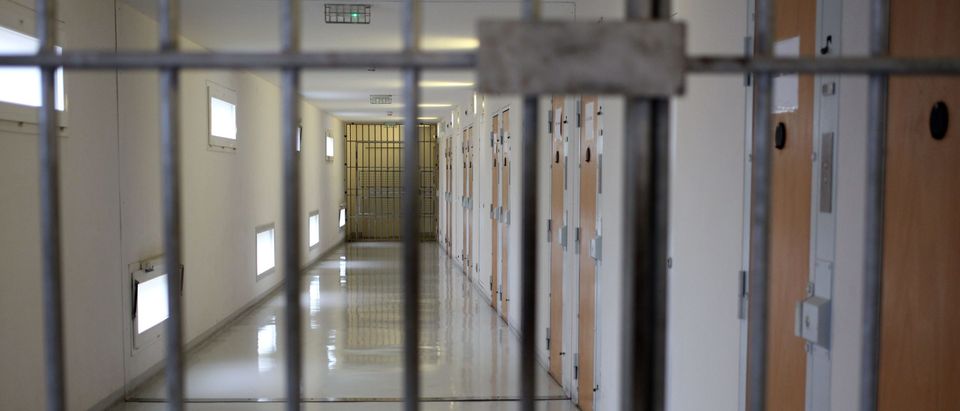Editor’s note: We endeavor to bring you the top voices on current events representing a range of perspectives. Below is a column arguing that the First Step Act allows criminals to evade accountability for their crimes. You can find a counterpoint here, where Executive Vice President of the Commonwealth Foundation Jennifer Stefano argues that the law is a meaningful step toward comprehensive prison reform.
President Donald Trump’s long list of accomplishments for America were spectacular and historic. Unfortunately, the First Step Act (FSA) was not one of them. The FSA makes Americans less safe and will result in more crime.
The law reduces mandatory minimum sentences for federal drug offenses, provides an easier path to early release for all federal prisoners, and expands the already existing “safety valve” provision which permits courts to sentence certain drug offenders below mandatory minimum penalties.
The FSA has opened the floodgates for thousands of dangerous federal convicts. In its first year alone, of the 2,243 prisoners turned loose, 900 had committed violent crimes, including homicide, aggravated assault, rape, armed robbery and weapons violations.
The vast majority of convicts released from prison re-offend. The Bureau of Justice Statistics (BJS) found that 83% were re-arrested for a new offense at least once during a nine-year period after release. At least two FSA early release recipients didn’t need that long — a high ranking gang member was promptly arrested for murder and a drug dealer went immediately back to his preferred line of work — trafficking crystal meth.
Released drug dealers will commit other crimes. BJS found more than 75% of those who were initially incarcerated for drug offenses were later arrested for a non-drug crime and 34% were later arrested for violent crimes.
The purpose of the FSA is to release as many criminals as possible and “rehabilitate” them. But we’ll never know if it works. The Senate rejected an amendment proposed by Republican Arkansas Sen. Tom Cotton and Republican Louisiana Sen. John Kennedy that would have required tracking the recidivism of federal inmates granted early release.
The First Step Act was sold by a lot of misinformation. Let’s look at four myths behind it.
Myth #1. The criminal justice system is systemically racist. This relies on the false leftist claim that racial disparity is proof of racism. Arrests are the result of criminal behavior — not race. For example, blacks commit 52% of all homicides in America while constituting only 13% of the population. When crime is committed disproportionately, arrests will also be disproportionate.
Myth #2. Convicted black offenders receive longer sentences than white offenders for the same crimes because of racism. Also, false. When individual cases are compared as to the specifics of the crime and the offender’s criminal history — sentencing disparities are eliminated or reversed.
Myth #3. The War on Drugs is racist. Crack cocaine exploded on the scene in the 1980’s, turning black neighborhoods into war zones as gangs fought to control drug-selling turf. Black Democratic New York Rep. Charles Rangel led the fight to stop the carnage. The Anti-Drug Abuse Act of 1986 created mandatory minimum penalties that differentiated between powder and crack cocaine. It set mandatory minimum penalties for trafficking based on the amount of the drug, requiring 100 times as much powder as crack to trigger the same penalty. The law was championed by Rangel and approved overwhelmingly by the Congressional Black Caucus. The crack-to-powder ratio has since been reduced.
Myth #4. America has a “Mass Incarceration” problem with tens-of-thousands of black men languishing in prison for simple drug possession. The fact is that America’s prisons are filled with violent offenders and average sentences are very short. Of the 1,489,400 prisoners in state and federal penitentiaries, 88% are held in the state system where 54% are serving time for violent or weapons-related offenses and less than 15% for drug offenses. Only 40% of state felony convictions even result in a prison sentence.
Of the remaining 12% of prisoners in the federal system, 47% are drug offenders — usually guilty of major trafficking. Only 18% of all American prisoners are primarily incarcerated for a drug offense and very few for mere possession. Only 3.5% of state prisoners and less than 1% of federal prisoners are in jail for possession — and almost all of those cases were pled down from a more serious charge.
What the United States has is an under-incarceration problem. This year, 12 major cities recorded the most homicides in their histories. Fearing no consequences, organized gangs of armed thugs rob and loot businesses with impunity. This chaos is the result of radical district attorneys refusing to prosecute criminals and releasing thousands from jail. The early release of more into our communities makes the problem worse.
Offenders should be reintegrated into the community after they have served their time. But rehabilitation is only one purpose of incarceration. There must also be justice for victims and retribution demanded by society for violating the law and morals of civilization.
Drug dealers sell poison. By reimagining criminals as victims, decarceration advocates ignore the real victims of crime. This year, 100,000 Americans died from drug overdoses — the most in history.
As a policeman, I’ve seen the impact of drug dealers. Gang murder; violent crime; drive-by shootings; mothers and teenage girls forced into street prostitution; hepatitis; AIDS; and child abuse, neglect, and sexual exploitation. These aren’t “non-violent” crimes and those responsible must be held accountable, both to their victims and to society. The First Step Act helps criminals evade that accountability.
Maurice Richards is the former chief of the Martinsburg Police Department in West Virginia. He served as chief from 2015 to 2020 after 24 years as an officer and lieutenant in the Chicago Police Department. Richards holds a doctorate in adult education from Northern Illinois University. His writing has been featured in The Daily Caller, The Federalist, Human Events, The Hill, and American Greatness.


